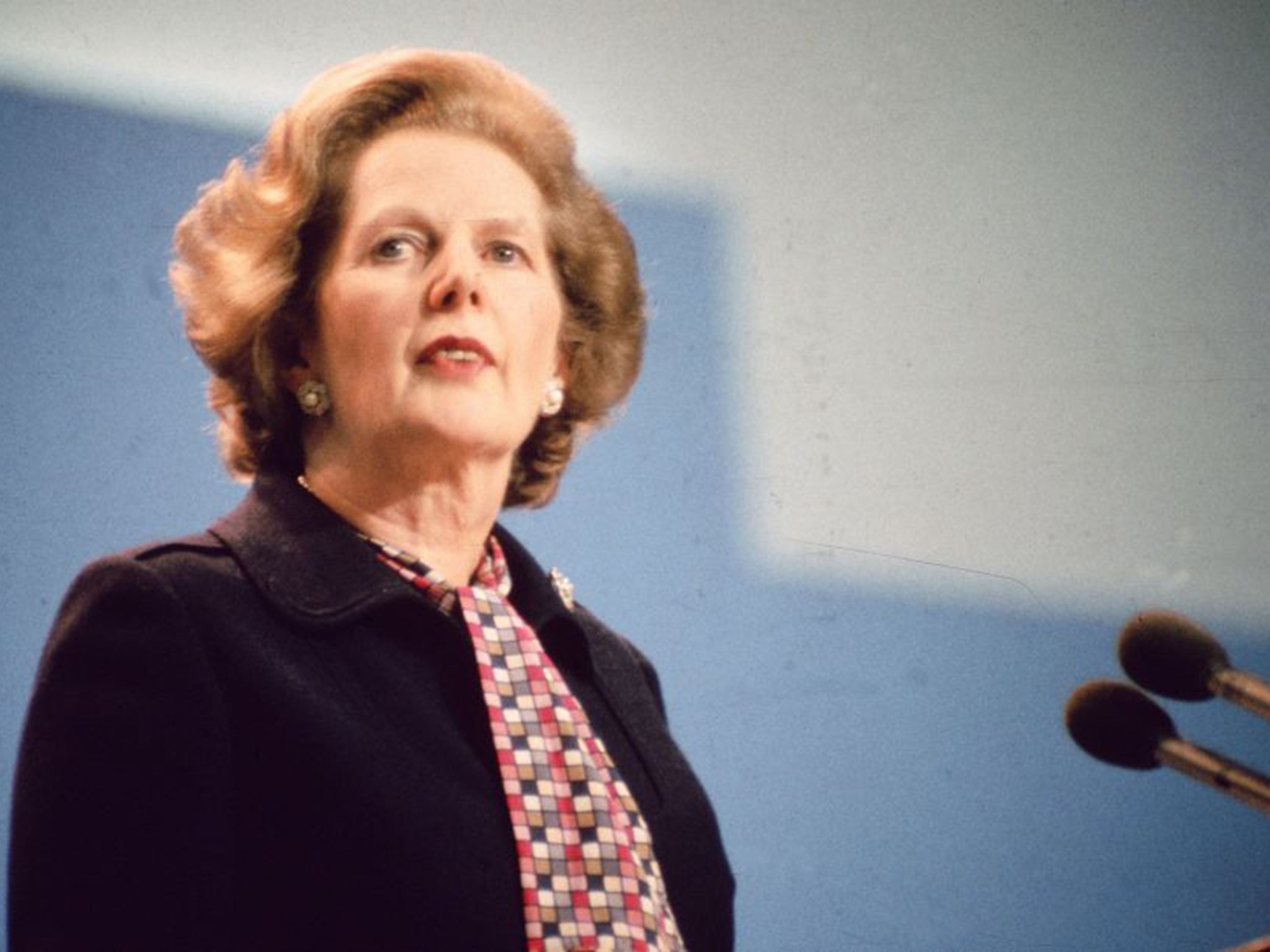Margaret Thatcher secret papers: PM tried to force BBC to have ads to curb spending
Thatcher revealed her enthusiasm for the idea after the issue was raised by the Home Secretary Willie Whitelaw

Your support helps us to tell the story
From reproductive rights to climate change to Big Tech, The Independent is on the ground when the story is developing. Whether it's investigating the financials of Elon Musk's pro-Trump PAC or producing our latest documentary, 'The A Word', which shines a light on the American women fighting for reproductive rights, we know how important it is to parse out the facts from the messaging.
At such a critical moment in US history, we need reporters on the ground. Your donation allows us to keep sending journalists to speak to both sides of the story.
The Independent is trusted by Americans across the entire political spectrum. And unlike many other quality news outlets, we choose not to lock Americans out of our reporting and analysis with paywalls. We believe quality journalism should be available to everyone, paid for by those who can afford it.
Your support makes all the difference.Advertising could have been imposed on the BBC and consumers offered televisions that did not show its channels under proposals floated by Margaret Thatcher to rein in its “extravagant” spending.
Documents covering the months shortly after she came to power in 1979 show that Mrs Thatcher wanted to consider commercialising parts of the corporation as it struggled to keep a lid on its costs.
Ministers were told that the BBC was running a deficit of £50m by November 1979 – a figure that was rising by £4m a month and its finances were in need of reform.
Files released at the National Archives show that the issue of advertising was raised by then Home Secretary, Willie Whitelaw, who declared himself opposed “both on financial grounds and on principle”.
But in a subsequent discussion with Mrs Thatcher, the Prime Minister revealed some enthusiasm for the idea of paid advertising on some of the radio channels as she criticised “the extravagance of some of the BBC’s spending”.
A memo of their discussion shows that Mrs Thatcher raised “the possibility of introducing advertising on light music radio programmes should be considered”.
She also proposed that a system be introduced which would allow viewers to only watch ITV and thus avoid paying a licence fee. With a nod to the practicalities of such a move, the memo added: “But it would of course be necessary for the TV manufacturers to produce a set which could only be tuned in to ITV stations”.
A memo to the Home Office later in 1979 suggested that Mrs Thatcher had turned against the idea, saying: “The Prime Minister... has decided that – on reflection – it would be a mistake for the Home Secretary even to raise the possibility of the BBC accepting radio advertising at this stage.”
Join our commenting forum
Join thought-provoking conversations, follow other Independent readers and see their replies
Comments